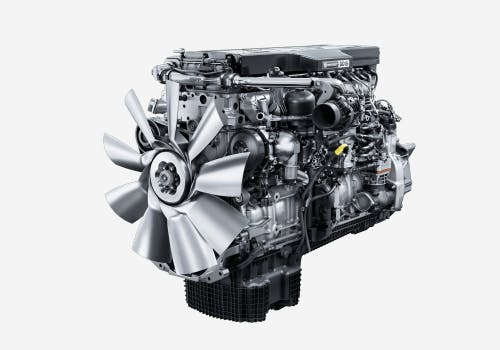A Full Guide to Choosing the Right Engine for Your Project
Choosing the appropriate engine for your task is a vital decision that can considerably impact its general success. Each of these aspects plays an essential function in ensuring that your chosen engine not only fulfills immediate objectives however also lines up with long-term goals.
Define Your Project Demands
Defining your project requires is a critical action in picking the ideal engine for effective implementation. A detailed understanding of your job's goals will certainly assist you in determining the abilities and features required from an engine. Begin by detailing the range of your job, including the preferred performance, target audience, and the particular outcomes you intend to accomplish.
Next, think about the technical needs that align with your job goals. This consists of evaluating the compatibility of the engine with existing systems, in addition to the shows languages and frameworks that will certainly be made use of. Additionally, examine the level of scalability called for to fit future growth or modifications in demand.
Budget restrictions likewise play an important role in specifying your project requires. Establish a clear monetary structure to guide your decision-making process, making certain that the engine selected fits within your spending plan while providing the required functionality.
Evaluate Efficiency Requirements

Engines that support horizontal scaling are usually more suitable for larger applications. In addition, evaluate the engine's performance under different conditions, such as peak usage scenarios, to guarantee it fulfills your integrity criteria.
Consider Ease of Use
While technical specifications are crucial, the convenience of usage of an engine can dramatically influence the development procedure and total task success. An user-friendly interface, clear paperwork, and structured workflows can dramatically decrease the knowing contour for designers, allowing them to concentrate on creativity and analytic as opposed to grappling with complicated devices.
When reviewing an engine's simplicity of usage, think about the onboarding experience. A well-structured introduction, complete with tutorials and sample projects, can promote a smoother change for brand-new users. In addition, the clearness and comprehensiveness of the engine's paperwork play a vital function; thorough guides and API references can encourage designers to fix and apply functions efficiently.
An additional element to think about is the engine's customization abilities. An engine that permits for simple alterations can be more user-friendly, as designers can tailor it to fit their details needs without extensive hassle. Last but not least, assess the workflow integration with systems and tools you already use. A natural environment can enhance productivity and minimize rubbing throughout the growth process. Eventually, picking an engine that focuses on simplicity of use can cause a more his response productive and pleasurable development experience.
Assess Neighborhood and Support
The strength of an engine's neighborhood and support network can greatly influence a designer's experience and success. When examining an engine, think about the size and activity degree of its neighborhood.
Furthermore, evaluate the accessibility of official assistance networks. Reliable documents, responsive client support, and normal updates are vital for addressing technical concerns and maintaining your project on track. Engines For Africa. Energetic communities additionally foster partnership, offering possibilities for networking and responses, which can be indispensable, particularly for independent programmers or small groups
In addition, explore the visibility of community-run events, such as meetups or hackathons. These events can enhance your understanding of the engine while linking you with experienced users and prospective partners. In summary, a durable neighborhood and support group not just simplify advancement yet additionally create an atmosphere conducive to learning and technology, ultimately enhancing the Bonuses possibility of your project's success.
Compare Expense and Licensing Alternatives
Budget factors to consider play a vital role in picking the appropriate engine for your job, as the price and licensing alternatives can considerably affect both short-term expenses and long-lasting viability. Engines For Africa. Various engines offer differing prices frameworks, which can consist of one-time acquisition costs, registration designs, or revenue-sharing contracts based on your project's incomes

Certifying options also vary considerably. Some engines are open-source, using adaptability and community-driven assistance, while others might require exclusive licenses that limit use and circulation. Understanding the effects of each licensing design is vital, as important link it influences ownership civil liberties, future scalability, and possible legal obligations.
Verdict
Finally, picking the suitable engine for a project necessitates a complete analysis of defined project requirements, efficiency needs, convenience of usage, neighborhood support, and price factors to consider. By methodically dealing with these essential aspects, decision-makers can make sure alignment with both future and current task needs. A knowledgeable choice ultimately boosts the likelihood of project success, allowing effective resource allocation and optimizing prospective results within the specified financial constraints.
Choosing the ideal engine for your project is an essential decision that can dramatically influence its overall success.Defining your task needs is an essential step in selecting the suitable engine for successful application. A detailed understanding of your task's objectives will lead you in determining the capabilities and functions required from an engine.When you have a clear understanding of your job needs, the following action is to examine the efficiency demands of the engine.In final thought, selecting the proper engine for a job requires a detailed assessment of specified job demands, efficiency demands, simplicity of use, neighborhood assistance, and expense factors to consider.